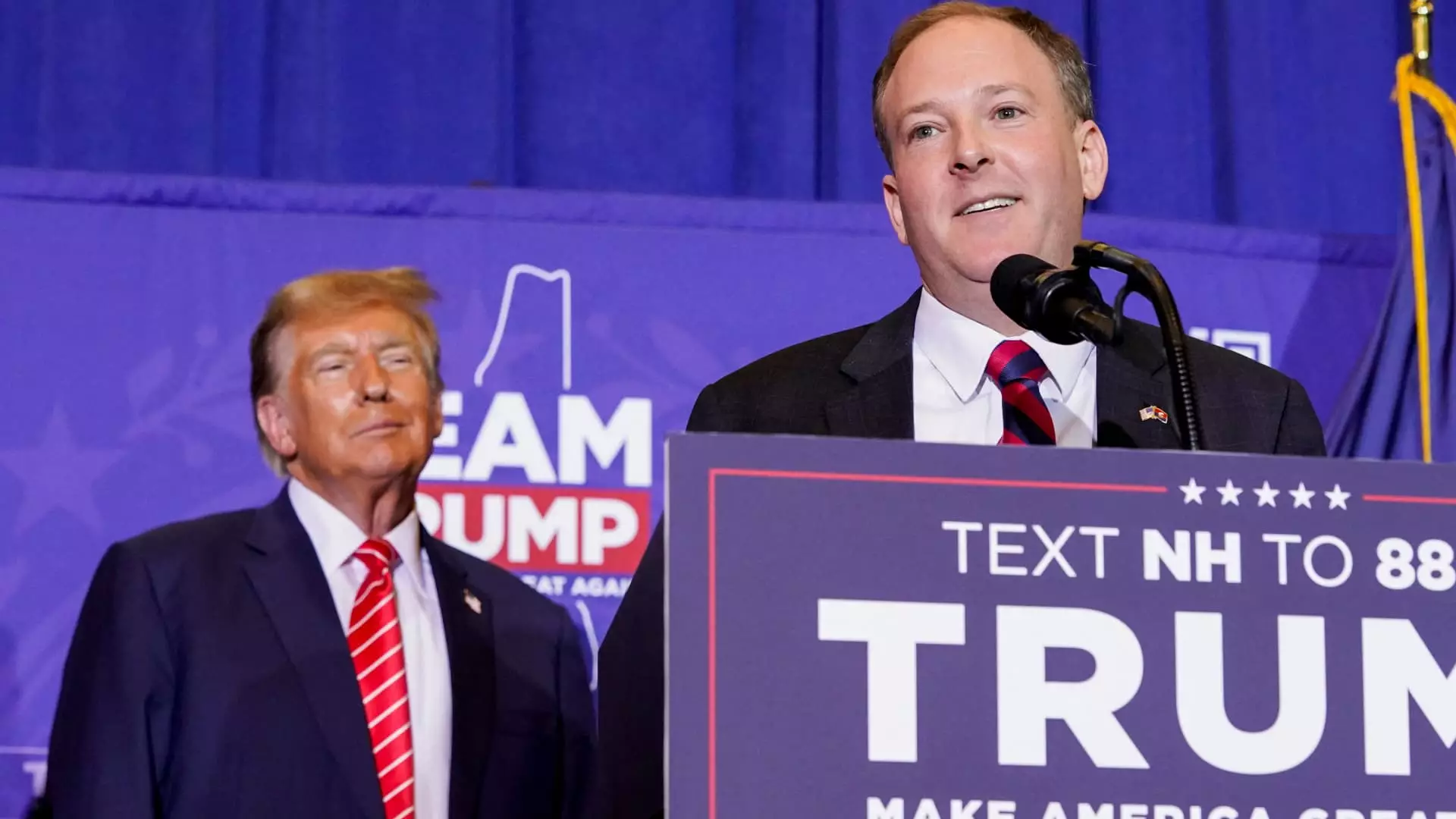As the political landscape shifts following the election of Donald Trump, significant appointments signal his administration’s direction going forward. The announcement that former Rep. Lee Zeldin will take the helm of the Environmental Protection Agency (EPA) and current Rep. Elise Stefanik will serve as the U.S. ambassador to the United Nations showcases a clear alignment with Trump’s “America First” agenda. However, these nominations also evoke strong reactions and critiques regarding their implications for environmental policy and international relations.
The selection of Lee Zeldin, an attorney with four terms in Congress representing a Long Island district, marks a critical move for Trump’s environmental strategy. Zeldin’s history suggests a robust commitment to deregulation, a principle Trump has championed throughout his political career. In his announcement, Trump emphasized Zeldin’s dedication to creating a streamlined regulatory environment that fosters business growth while upholding essential environmental safeguards such as clean air and water. This dual aim—promoting economic opportunity while maintaining environmental standards—highlights the administration’s attempt to balance competing priorities.
Despite these intentions, Zeldin’s past raises alarms among environmental advocates. With an alarming lifetime rating of just 14% from the League of Conservation Voters, his record is filled with votes deemed anti-environmental. Critics like Ben Jealous, executive director of the Sierra Club, have been vocal in their opposition, labeling Zeldin as “unqualified” and suggesting that his nomination endangers the very mission of the EPA. This hostility underscores a larger debate about the role of governmental regulation in safeguarding environmental resources against corporate interests.
Elise Stefanik’s appointment as the U.N. ambassador carries its weight and significance as well. As a chair of the House Republican Conference, her role within Congress has established her as a prominent Republican figure and a staunch supporter of Trump’s agenda. Trump praises her active engagement in national security issues and her leadership against antisemitism, positioning her as a capable mediator on the global stage.
Nevertheless, her appointment raises questions about the dynamics within Congress, particularly concerning Republican representation in the House. Should she ascend to the U.N. post, Republicans may face a turbulent transition in maintaining control over the House. Stefanik’s dual role could dilute Republican influence at a crucial time, depending on the 2025 political landscape.
While the Trump administration’s choices reflect an unwavering commitment to deregulation and a singular vision for America’s international posture, these nominations also suggest a potential neglect of pressing global issues. Environmental deterioration and international relations are complex areas that demand thoughtful, nuanced approaches rather than the unilateral strategies favored by conservatives.
Zeldin’s focus on revitalizing the U.S. auto industry and championing energy dominance fails to acknowledge the integral role that sustainability should play in modern economic policies. As the global community grapples with climate change issues, appointing a figure with a questionable environmental track record risks exacerbating existing challenges.
Moreover, Stefanik’s role in promoting “peace through strength” echoes a traditional militaristic approach to international diplomacy that may not be conducive to fostering well-rounded global partnerships. Given the increasing complexities of geopolitical relations, a more collaborative stance could yield better outcomes for both the U.S. and its allies.
The appointments of Lee Zeldin and Elise Stefanik signify a deliberate alignment with Trump’s overarching narrative of prioritizing American interests in both domestic and global arenas. These selections underscore a broader ideological stance that favors deregulation and a more assertive international policy. However, the potential backlash from environmental advocates, coupled with considerations for Congressional dynamics, suggests that these appointments may face considerable scrutiny and challenge.
As the political landscape continues to shift, monitoring the actions and policies implemented by Zeldin and Stefanik will be crucial in evaluating their impact on both the environment and international cooperation. Ultimately, how these leaders reconcile their agendas with the intricacies of modern governance will shape the trajectory of American policy in the coming years.


Leave a Reply